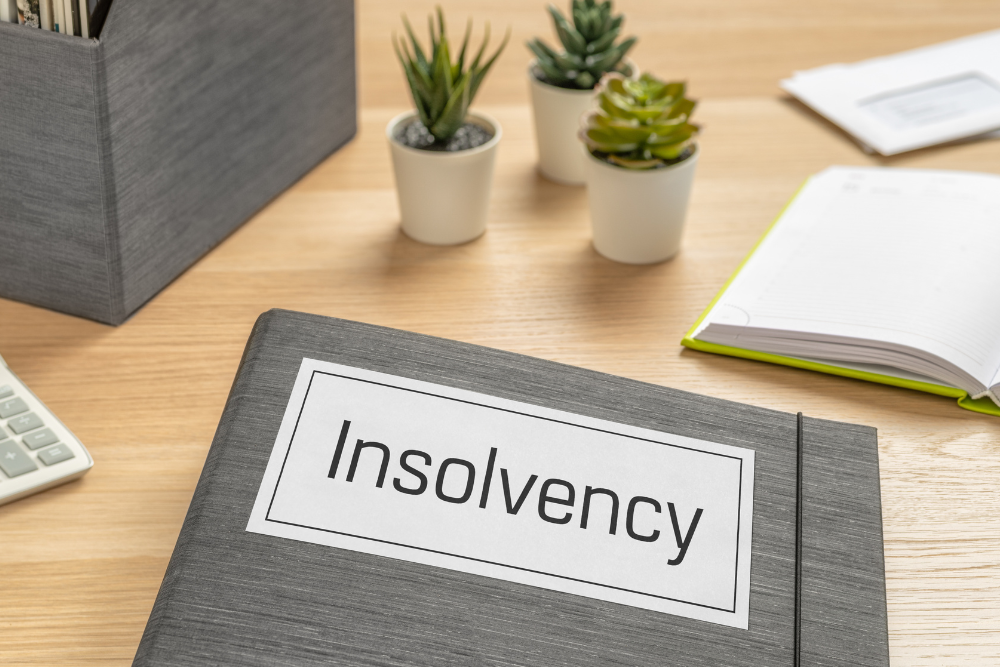Insolvency Practitioner Fundamentals Explained
Insolvency Practitioner Fundamentals Explained
Blog Article
Insolvency Practitioner - The Facts
Table of ContentsSome Of Insolvency PractitionerExcitement About Insolvency PractitionerThe 6-Minute Rule for Insolvency PractitionerThe Insolvency Practitioner StatementsInsolvency Practitioner - An Overview
Whether or not you require to utilize a bankruptcy specialist (IP) to liquidate your business relies on numerous factors. While engaging an insolvency specialist for all types of liquidation is not a legal demand, doing so can commonly streamline the procedure and guarantee conformity with lawful needs. Liquidating a firm is a crucial choice that comes with significant effects.
It is a procedure used when a company does not have any lenders, or all of their lenders can be paid off completely with statutory rate of interest. Comprehending the different kinds of insolvency procedures can aid you determine the very best strategy for your firm's liquidation or other formal insolvency procedures itself.
This is required in order to adhere to legal requirements - Insolvency Practitioner. This is due to the fact that IPs have the necessary credentials and experience to make sure that the liquidation process is conducted based on all suitable laws and policies. By engaging a qualified insolvency specialist, you can have assurance recognizing that your business's liquidation procedure will certainly be handled professionally and in compliance with the pertinent legal needs
Insolvency Practitioner Fundamentals Explained
The insolvency practitioner is selected as a liquidator and is accountable for handling the company and liquidator's financial obligations superior liabilities and possessions. This procedure entails offering off the business's properties and dispersing the earnings to lenders. Upon conclusion of the procedure, the business is removed from the register at Companies Home.
Stopping working to do so can lead to individual responsibility for the company or director for the creditor's financial obligations. Volunteer liquidation, which consists of Financial institutions' Volunteer Liquidation (CVL) and Members' Voluntary Liquidation (MVL), is initiated by the company's directors and shareholders when they can no more pay their debts. In a CVL, the insolvency professional is assigned as the liquidator, liable for taking care of business debts and all business properties.

3 Simple Techniques For Insolvency Practitioner
By assessing the proficiency and experience of prospective bankruptcy practitioners, you can make sure that you select a specialist that possesses the essential Full Article credentials to manage your firm's liquidation procedure efficiently. While insolvency practitioner-led liquidation is usually one of the most ideal program of activity for companies facing bankruptcy, there are alternative strategies to think about, such as striking off and partial liquidation.
It's vital to review all available choices before picking the next finest option or program of action for your business. Striking off firms' signs up is a much more straightforward and cost-efficient way to close inactive or little firms without read more debts or properties. To strike off a company, its name is removed from the Business Residence register by submitting form DS01.
Before selecting striking off, it's crucial to consider the advantages and disadvantages of this strategy and consider whether it's the best selection for your business. Partial liquidation is another choice to bankruptcy practitioner-led liquidation, where a firm sells off certain assets and obligations while remaining to run with the continuing to be possessions and liabilities.
A Bankruptcy Professional will be able to suggest you of the most effective strategy to take and make sure that every little thing runs smoothly. It is not possible to sell off a company without a liquidator. Designating an authorized insolvency specialist is necessary for the process of voluntary liquidation to begin.
Getting The Insolvency Practitioner To Work
It is possible to shut and liquidate your firm without utilizing a liquidator, provided your firm is solvent and you meet the qualification requirements to dissolve or liquidate it. If your business is bankrupt, you might be needed to make use of a liquidator and begin official insolvency view it now procedures. Right here are some various other useful posts pertaining to firm liquidation in the UK:.
Being in a position where you're not able to pay your business's creditors is exceptionally stressful. In an effort to prevent raising the level of debt, many companies attempt to discuss straight with their lenders and consent to an informal arrangement. If the financial debt is fairly small and owed to one creditor, and the financial institution is being cooperative, getting in into an casual debt setup is most likely the most effective service, instead than browsing the web for 'a bankruptcy practitioner near me'.
On the various other hand, if there are numerous lenders and the level of debt is huge, creditors may not be so ready or cooperative. To avoid liquidation or bankruptcy, it is better to work with an insolvency professional to formulate official propositions and discuss with lenders on your behalf.
Insolvency Practitioner Fundamentals Explained
Whilst it is a way to manage debt, there are significant dangers entailed with this sort of debt arrangement - Insolvency Practitioner. If a financial institution agrees to become part of a casual plan (IA) whereby the debtor has actually accepted make routine, if lower, repayments to repay the debt, it's crucial to adhere to the agreement

For that reason, the lender is within their legal rights to revoke the contract and request the courts for your business to be sold off at any kind of time. A formal setup that has been recommended by an insolvency specialist on your behalf, and concurred by a financial institution, provides a much safer option.
Report this page